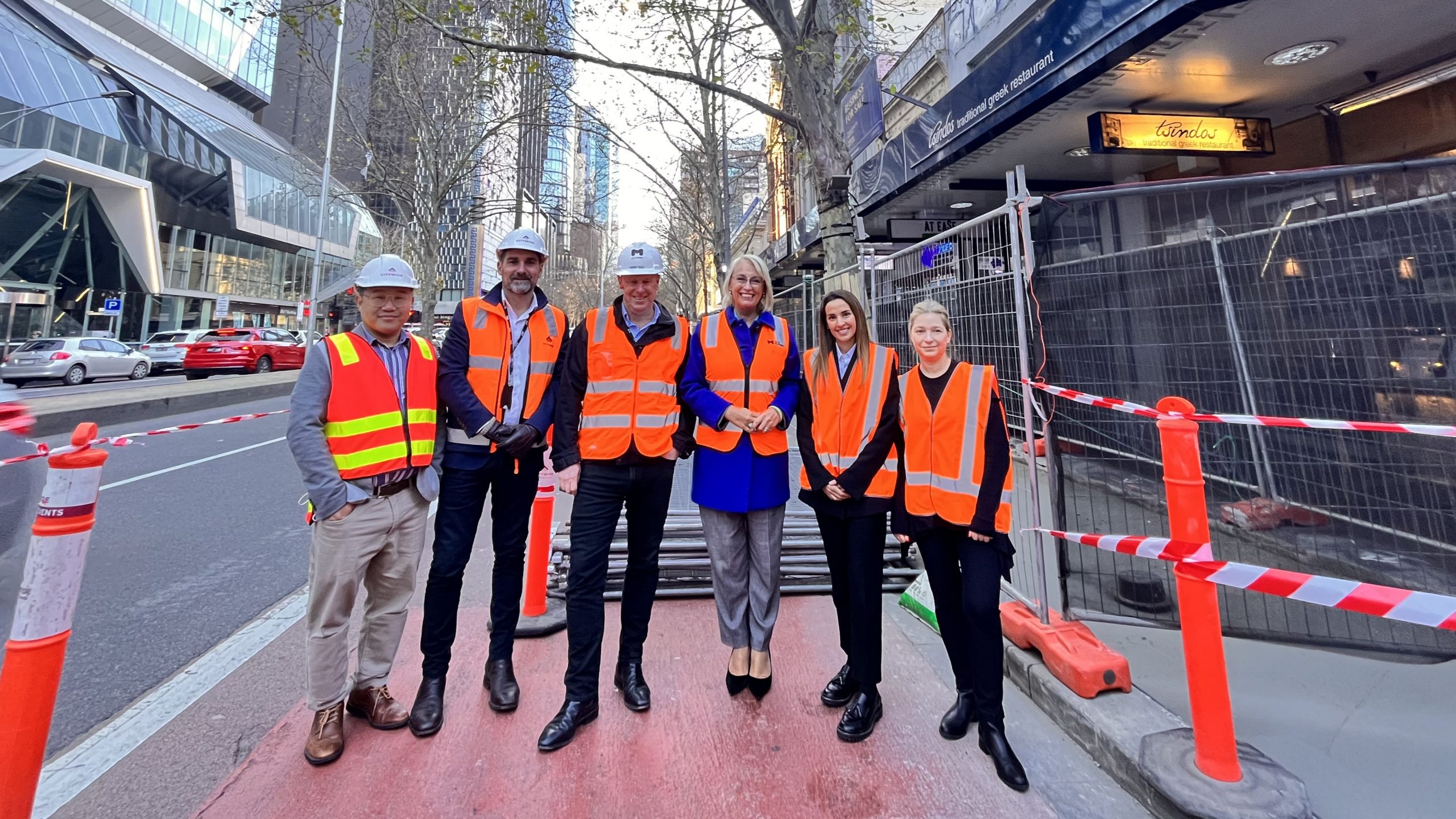The City of Melbourne is completing upgrades to Lonsdale Street, with new works set to improve dining facilities and add additional greenery to the Greek precinct just in time for the Antipodes Greek Festival in October.
The works, which are scheduled for completion by August, include reinstating the Hellenic Greek stone pavers as well as installing a new irrigation system and stainless steel planter boxers with rosemary. There will also be repair done to any broken blue stone pavers and removal of the five existing cafe shelters.
Why, it’s Greeced lightning!
— City of Melbourne (@cityofmelbourne) July 21, 2022
Melbourne’s much-loved Greek Precinct is about to get a revamp with a series of works underway on Lonsdale Street.
Key features of this renewal project include improved footpaths,new café screen planter boxes and open spaces to improve dining areas. pic.twitter.com/Zij7X468jY
Lonsdale Street hosts the Greek Community of Melbourne’s Antipodes Greek Festival each year, attracting large crowds from across the city.
With stalls, entertainment, performers, food and children’s activities, the street upgrades will ensure the Greek precinct continues to provide a functional space for this year’s festival and for celebrations in the years to come.
Speaking to Brendan Rees from CBD News, Lord Mayor of Melbourne, Sally Capp said: “Melbourne’s Lonsdale St Greek precinct is a vibrant hub of culture and celebration.”
“For decades Lonsdale St has been the home of our Greek community, boasting some of the best restaurants in the city and hosting the annual Antipodes Greek Festival.”
Antipodes is YOU…
— Greek Community of Melbourne (@gocmv) July 27, 2022
Share with us your favourite Antipodes moments #whatsonmelbourne #lovelonsdale #antipodesfestival #lonsdalestreet pic.twitter.com/obtXQleMIp
Also speaking to CBD News was owner of Tsindos Greek Restaurant, Harry Tsindos, who said he, along with his customers, welcome the project which is beautifying the precinct.
“They are doing a great job in reigniting Melbourne, the CBD and bringing people back,” he said.
The project is funded through the $100 million Melbourne City Recovery Fund, a partnership between the City of Melbourne and the state government.

